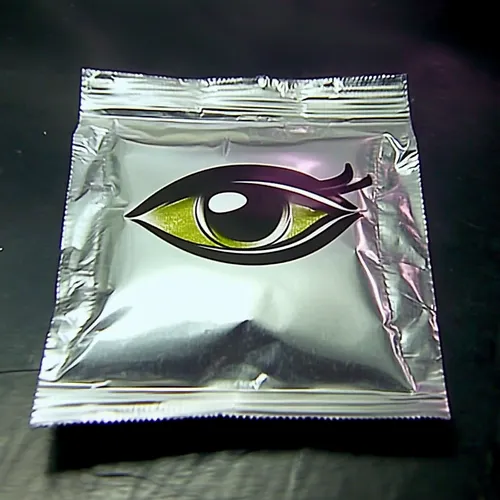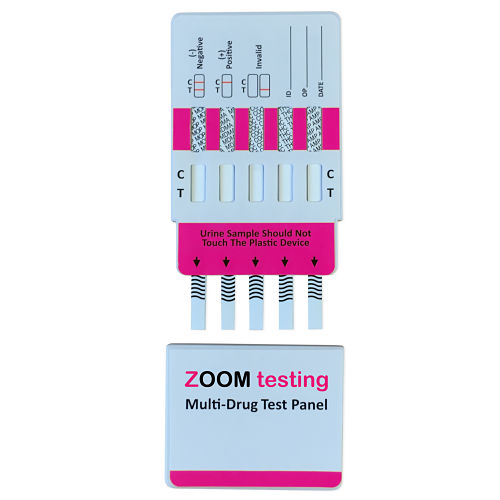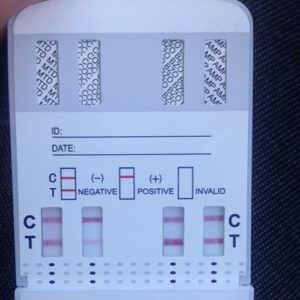About This Article
Zoom Testing has supplied drug testing kits to UK customers for nearly 20 years. This guide draws on our experience helping thousands of people understand drug testing, workplace compliance, and synthetic cannabinoids. Always follow current UK legislation regarding drug testing.
Published: April 2019 | Last Updated: November 20, 2025 | By Anthony Cunningham
Contents
What Is Spice?
Spice is the brand name of herbal mixtures intended to be smoked. Spice can be found on the internet and in specialist smoke shops in areas where it can be legally sold. Spice and similar products are a type of drug known as synthetic cannabinoids. Spice first came on the scene just after the turn of the century, and several manufacturers made many competing drugs, including K2, another brand of synthetic cannabis.
Most of these mind-altering synthetic drugs usually start with herbs or other plant materials coloured olive-green, that are sprayed with synthetic THC, the compound in cannabis that causes the high. Some of these synthetic compounds are more potent, some significantly more potent, than natural THC. Also, these products are unregulated, making it not only impossible to know exactly what is in a given drug, but impossible to know just how potent a given product will be. This is true of all synthetic cannabis drugs, making them all incredibly dangerous.
Important: According to Talk to Frank, synthetic cannabinoids are often more potent than natural cannabis, making it easier to use too much and experience unpleasant and harmful effects. Recent research from the University of Bath found that one in six vapes confiscated in UK schools contained Spice.
The Dangers of Synthetic Cannabinoids
Synthetic cannabinoids like Spice aren’t just illegal – they’re downright dangerous. Unlike natural cannabis, these lab-created compounds can pack a seriously unpredictable punch. One puff might feel mild, while the next sends you spiralling into a terrifying psychotic episode.
What’s more, these drugs can wreak havoc on your body. Users have reported racing hearts, violent nausea, and even seizures. In extreme cases, synthetic cannabinoids have been linked to heart attacks and strokes – even in young, otherwise healthy individuals.
But perhaps the scariest part? The long-term effects remain a mystery. Scientists are still uncovering how these substances impact the brain over time. Early research suggests they may increase the risk of developing mental health issues like anxiety and depression.
Bottom line: dabbling with Spice and its cousins is like playing Russian roulette with your health. The high isn’t worth the gamble.
Harm Reduction Resources
If you or someone you know is using synthetic cannabinoids, these UK organisations provide confidential support and information:
- Talk to Frank – Free confidential drugs advice (24/7 helpline: 0300 123 6600)
- DrugWise – Independent UK drug information charity
- NHS Inform – Health information and harm reduction guidance
The Law Regarding Synthetic Cannabinoids
Most synthetic THC formulas, along with any mixtures that contain them, are categorised as Class B drugs, meaning that they are illegal to possess, sell or give away. While there are synthetic THC formulas that can be legally possessed, it’s impossible to know whether the formula used in a given product is legal. So although there are smokable mixtures that are technically legal, it’s impossible to know for sure whether this is true of a particular product.
The UK government introduced the Psychoactive Substances Act 2016 to tackle the emergence of “legal highs” like Spice. This Act made it an offence to produce, supply, or offer to supply any psychoactive substance likely to be used for its psychoactive effects. Most synthetic cannabinoids were subsequently controlled as Class B drugs under the Misuse of Drugs Act 1971 in December 2016.
Legal Penalties
Possessing banned synthetic cannabinoids carries a possible five years in prison and/or fine.
Distributing synthetic cannabinoids carries a possible 14 years in prison and/or fine.
What If You’re Caught?
If you are caught with banned synthetic cannabinoids by police, some action will be taken. This could range from formal caution, to arrest and prosecution. Drug-related convictions have serious long-term impact. You may not be able to travel to certain countries or hold certain jobs. It may even disqualify you for obtaining certain student aid.
How Long Does Spice Stay in Your System?
Unlike natural cannabis, synthetic cannabinoids present unique challenges when it comes to detection times. The wide variety of chemical compounds used in Spice products means detection windows can vary significantly.
Detection Windows by Test Type
Urine tests are the most common method for detecting synthetic cannabinoids. Most synthetic cannabinoids can be detected in urine for 2-5 days after last use for occasional users. For regular or heavy users, detection windows may extend to 7-10 days or longer.
Saliva tests typically detect synthetic cannabinoids for 1-2 days after use. This shorter detection window makes saliva testing useful for detecting very recent use, particularly in workplace drug testing scenarios.
Blood tests can detect synthetic cannabinoids for up to 24-48 hours. Blood testing is less common due to its invasive nature and shorter detection window.
Note: These are general estimates. Detection times vary based on factors including the specific synthetic cannabinoid compound, frequency of use, metabolism, body mass, and hydration levels.
Testing for Spice: What You Need to Know
Testing for synthetic cannabinoids requires specialised drug tests. Standard cannabis tests that detect THC will not identify synthetic cannabinoids, as these are entirely different chemical compounds. Employers, parents, and individuals need specific tests designed to detect these substances.
Multi-Panel Tests with Spice Detection
Modern multi-panel drug tests can screen for multiple substances simultaneously, including synthetic cannabinoids. These comprehensive tests provide peace of mind for parents concerned about their children’s drug use, or employers maintaining safe, drug-free workplaces.
Take Action: Our 10 Panel Drug Test with Spice and Nicotine provides comprehensive screening for synthetic cannabinoids and nine other common drugs. Easy to use at home with results in minutes. Trusted by thousands of UK customers for nearly 20 years.
How Drug Tests Work
Urine-based drug tests use immunoassay technology to detect drug metabolites. For synthetic cannabinoids, tests identify specific metabolites that these substances produce when broken down by the body. A test strip or cup format provides clear positive or negative results, typically within 5 minutes.
For detailed guidance on purchasing Spice-specific tests, visit our Spice drug test kits page.
Workplace Implications
Employers have a duty of care to maintain safe working environments. Under the Health and Safety at Work Act 1974, employers must ensure workplace safety, which includes addressing drug and alcohol misuse. Many UK employers now include synthetic cannabinoids in their drug testing policies.
Legal Drug Testing in the Workplace
According to guidance from ACAS (Advisory, Conciliation and Arbitration Service), workplace drug testing must be conducted fairly and lawfully. Employers should have clear drug and alcohol policies, obtain employee consent, and maintain confidentiality.
Testing is particularly relevant for safety-critical roles such as HGV drivers, machine operators, and construction workers. For more information on workplace requirements, see our guide to what happens if you fail a drug test at work.
Industries with Drug Testing Requirements
- Transport and logistics (including HGV drivers)
- Construction and heavy machinery operation
- Healthcare and pharmaceutical industries
- Aviation and rail sectors
- Oil, gas, and energy industries
- Security services and law enforcement
Did You Know?
Driving under the influence of drugs is just as bad as driving when drunk and carries very similar penalties. Using some drugs, especially if you stay up all night, can impair you well into the next day. Getting caught driving under the influence of drugs can result in stiff fines, suspension or revocation of your licence and possibly even prison time.
Allowing someone else to use drugs on your property is illegal and, as the property owner, you can be held liable and prosecuted if the police catch others using drugs in your home or business.
Vulnerable Populations: Research has shown that synthetic cannabinoid use remains particularly high among vulnerable groups, including homeless populations and those in prisons. A 2018 Home Office review of the Psychoactive Substances Act acknowledged that despite the legislation, high levels of synthetic cannabinoid use continue amongst these vulnerable user groups.
What Customers Say
Here’s what UK customers have said about using Zoom Testing drug test kits:
“I’ve never taken drugs or used a drug test before so it was a bit intimidating at first but I contacted Zoom Testing and they were very helpful in pointing me in the right direction. I was worried about my son who had been smoking cannabis. The test was simple to use and I now have peace of mind knowing that he is no longer using the drug. Also allowed me to confirm that he was not using anything else. Good deterrent too, as he knows that he can be tested at any time.”
– Tina
“Easy to use test that arrived very quickly. From a urine sample I was able to test for cannabis and synthetic cannabis. The results were negative. As a parent this was a great relief!”
– Andy B
“Great customer service, and kit arrived promptly with clear instructions.”
– Verified Buyer
Ready to Test? All Zoom Testing drug test kits come with clear instructions, deliver results in minutes, and are trusted by thousands of UK families and employers. Discreet packaging and fast delivery across the UK.
About the Author
Anthony Cunningham – Drug Testing Expert & Editor
Anthony Cunningham, BA (Hons), MA, is a UK-based drug testing expert and editor with over 20 years’ experience running Zoom Testing, a trusted source for accurate drug testing kits and testing guidance. He creates clear, evidence-based articles using UK legislation, workplace compliance standards, and harm reduction best practices. Where possible, content is reviewed by testing specialists and compliance professionals to enhance accuracy and reliability, helping readers make informed testing decisions.






